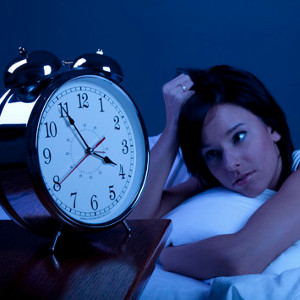Your body clock regulates many aspects of your life, some you’re not even aware of, like what time of day you burn the most calories. American researchers have now determined that we burn more calories in the afternoon than in the morning…
 Resting in the early evening: Made possible by on-demand TV streaming…
Resting in the early evening: Made possible by on-demand TV streaming…
In fact, investigators at the Division of Sleep and Circadian Disorders at Brigham and Women’s Hospital and Harvard Medical School say we naturally burn as many as 10 percent more calories in the afternoon, even when resting.
But what happens when circumstances (or researchers) tinker with our body, or Circadian, clock?
Around the world in seven days…
To determine changes over the course of the day in metabolism apart from the effects of activity, sleep-wake cycle, and diet, the researchers studied seven people in a special laboratory without any clues about what time it was outside. There were no clocks, windows, phones, or Internet. Study participants had assigned times to go to bed and wake up. Each night, those times were adjusted four hours later, the equivalent of traveling westward across four time zones each day for three weeks.
“Because they were doing the equivalent of circling the globe every week, their body’s internal clock could not keep up, and so it oscillated at its own pace,” Study Co-author Jeanne Duffy explains. “This allowed us to measure metabolic rate at all different biological times of day.”
What they found…
The study’s key finding was that resting Caloric expenditure was lowest in the wee, dark hours of early morning when we’re naturally most deeply asleep. And the highest expenditure was about 12 hours later, in the late afternoon and early evening.
What it means…
Very simply, it means that regularity in one’s eating and sleeping habits is important to maintaining a steady, healthy lifestyle. When you experience work rotating shifts, jet lag, pull all-nighters or simply follow an irregular sleeping and dining cycle (as many first responders do), you are at greater risk of weight gain than others who maintain regular schedules.
“It is not only what we eat, but when we eat — and rest — that impacts how much energy we burn or store as fat,” Duffy says. “Regularity of habits such as eating and sleeping is very important to overall health.”
Duffy and her colleagues want to follow-up with additional, more detailed studies looking at how appetite and the body’s response to food varies with the time of day. They are also exploring how the timing, duration, and regularity of sleep influences those responses.
My take…
So, what they’re saying is, if you want to stay slim and trim, do like many athletic and health-conscious folks do, and concentrate your physical activity in the mornings, when your body naturally burns fewer Calories. And take your ease in the afternoon and early evening, when your body is already tired from your busy day and is burning up to 10 percent more Calories than it did earlier, whether you’re active or not.
Not quite a silver bullet for obesity, but sensible and easy to implement, nonetheless. I can see how the survey findings would tie in nicely with other recent discoveries, such as the effects of the timing and duration of meals. Slowly, science is putting together the pieces and helping us all make sense of ourselves…
~ Maggie J.

